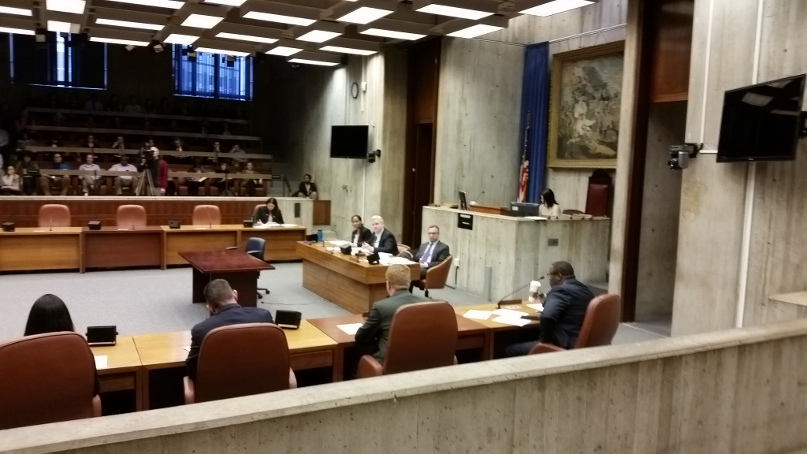
04 Apr 2016 Boston Mobilizes to Adopt the Community Preservation Act
More than 160 representatives of historic preservation, affordable housing and open space organizations squeezed into the Boston City Council’s chambers this week to advocate for the Community Preservation Act (CPA) to be placed on the November 2016 ballot.
CPA is a tool designed to help Massachusetts cities and towns create affordable housing, preserve historic places and develop outdoor recreational opportunities. CPA funds are generated by a small surcharge on local property tax bills matched by a statewide trust fund to maximize their impact.
HBI is one in a coalition of more than 40 community-based housing, preservation and open space groups who believe the climate is right for a vote. The coalition is recommending a one percent CPA property tax surcharge, with exemptions for low-income homeowners, low-and-moderate-income senior homeowners and for the first $100,000? of residential and business’ property value.
The average single family homeowner would pay just $23.09 per year towards Boston’s local Community Preservation fund. In turn, the city would generate up to $20 million every year for CPA projects. These new dedicated funds would allow Boston to:
- Create thousands of new, affordable homes for seniors, families and veterans
- Restore and preserve historic buildings and rehabilitate underutilized historic resources
- Develop and improve parks, playgrounds, trails and gardens
- Acquire land to protect water quality and reduce climate change impacts
If Boston had adopted CPA when it was first launched in Massachusetts 16 years ago, nearly $400 million would have been generated between local funds and state matches, creating innumerable benefits for the City.
Since its creation in 200, CPA has been adopted by 160 Massachusetts communities, including the cities of Cambridge, Fall River, Malden, Medford, New Bedford, Quincy, Salem, Somerville and Waltham. CPA has generated over $1.6 billion in dedicated funds statewide, and helped fund the creation of 9,400 affordable homes, 1,500 outdoor recreation projects, 4,000 historic preservation projects and protected over 23,000 acres of open space.
In a poll conducted in late 2015, 64 percent of Boston voters supported CPA and especially its ability to fund affordable housing projects throughout the city. Support grew to 70 percent once voters learned of the small ($23.09) annual cost to the average homeowner. In addition to voters, a growing list of nonprofit partners, small and large businesses, and faith, labor and neighborhood groups support CPA for Boston.
We will continue to update you over the next several months, but to learn more about the Community Preservation act visit www.communitypreservation.org.



